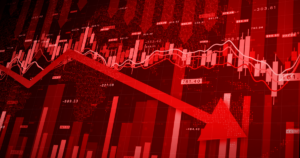Introduction:
Investing wisely is essential for safeguarding your savings, maximizing your income, and preserving the purchasing power of your money over time. With the Pakistani rupee facing devaluation, it becomes crucial to explore strong investment options. Diversifying your portfolio by investing in stable foreign currencies can help mitigate the risks associated with the rupee’s depreciation. In this blog post, we will discuss the top currency choices for investment in Pakistan, providing valuable insights to help you protect and grow your wealth during these uncertain economic times.
- The Mighty US Dollar (USD):
The US dollar is globally recognized as the most traded currency and holds the status of being the world’s primary reserve currency. Given the United States’ highly developed economy, investing in the USD can be exceptionally profitable. With more than 90% of all Forex transactions conducted in US dollars, it offers significant liquidity and stability. - The European Euro (EUR):
The European Euro is renowned for its high value and stability, making it a safe choice for investment. As the world’s second most popular reserve currency, the Euro provides a reliable option for diversifying your investment portfolio. Its strength is backed by strong economic indicators, including a stable economy, high GDP, and an advanced banking system. - The Reliable Swiss Franc (CHF):
The Swiss Franc is a high-value currency known for its stability and safety. Supported by a robust economy and advanced banking infrastructure, it presents one of the best options for currency investment. With a favorable exchange rate, investing in Swiss Francs can help protect and grow your wealth.
Diversification and Risk Mitigation:
While each of the aforementioned currencies is an excellent choice for investment, it is crucial to avoid putting all your savings into a single currency. Diversification is key to managing risk effectively. By investing in multiple currencies, you can hedge potential losses in one currency with profits from another. This approach helps safeguard your investments against the volatility of any single currency.
Why Hedging with an Alternative Currency is Important in Pakistan:
There are several factors that make it essential to hedge the Pakistani rupee with an alternative currency:
- Political Unrest: Pakistan’s political situation has been unstable, impacting the country’s economic performance. Foreign investors may withdraw their funds due to political uncertainty, leading to a decline in the currency’s value.
- Inflation: Pakistan has been experiencing high inflation rates, eroding the purchasing power of its currency. This discourages foreign investors and contributes to the devaluation of the Pakistani rupee in the international market.
- Trade Imbalance: Pakistan’s trade deficit, where it spends more on imports than it earns from exports, directly affects the devaluation of its currency. Addressing this imbalance is crucial for stabilizing the currency.
- Interest Rates: The Pakistani currency’s value is often influenced by changes in the interest rates of the US dollar. When interest rates in the US increase, investors tend to move their funds to take advantage of higher returns, leading to a depreciation of the Pakistani rupee.
- Debt Burden: Pakistan’s high debt deficit raises concerns among investors about the country’s ability to repay its debt. This uncertainty can negatively impact the currency’s value.
Conclusion:
In light of the Pakistani rupee’s devaluation, investing in stable foreign currencies can help protect and grow your wealth. The US dollar, European Euro, and Swiss Franc are among the top choices for investors looking to diversify their portfolios. By hedging your investments across multiple currencies, you can mitigate risks and safeguard your savings. Stay informed about global economic trends and consider seeking the guidance of a reputable Forex broker to make sound investment decisions in Pakistan.
Remember, investing always carries risks, and it’s essential to conduct thorough research and consult with financial experts before making any investment decisions.







